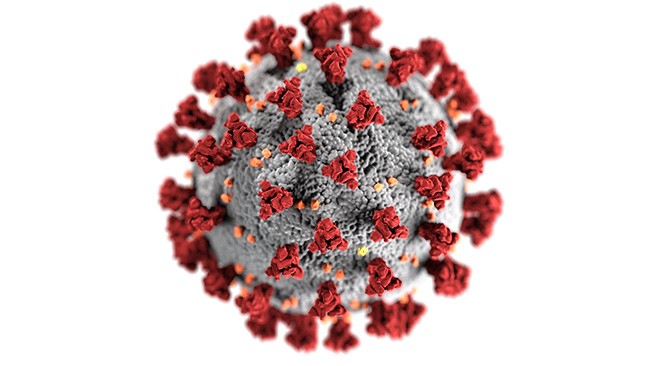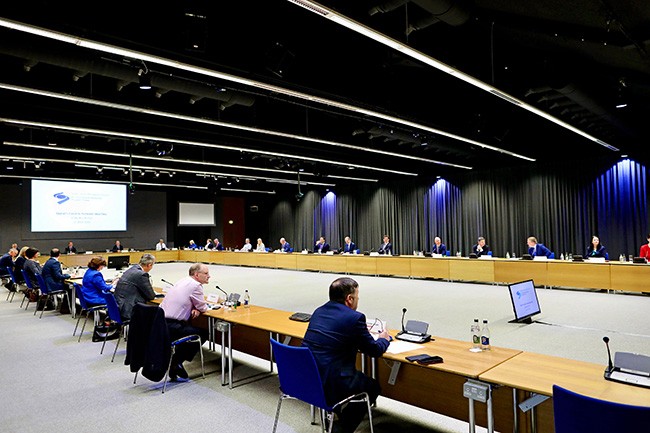7 September 2020 Edition
Tackling the mental health crisis

The World Health Organisation has stated that COVID-19 could cause a global mental health crisis and indeed, as a result of necessary restrictions being put in place, there has been an upsurge in people looking to avail of mental health supports. The longer this crisis goes on, the bigger the demand will be on services.
We need to prepare and plan now to deal with the psychological aftermath and additional mental health needs as we emerge from COVID-19.
2020 began with a political focus on the unprecedented crisis in mental health. One of the first acts of the restored Executive in the Six Counties was to form a mental well-being and resilience working group.
In the Six Counties, we face unparalleled mental health challenges with some of the highest reported rates of post-traumatic stress disorder in the world and clear challenges presented by transgenerational trauma in our youth population.
COVID-19 has only added to the mental health challenges our society faces, and indeed will compound them as we understand how multiple traumatic events create particular mental health needs.
As we gradually ease out of the restrictions, it is vital that adequate support is in place for services and for those seeking help but, until a vaccine is found, it means co-existing with the virus and a radical change to our daily lives.
The additional areas of need are likely to include families recently bereaved from COVID-19 and non COVID-19 deaths; survivors of COVID-19; long-term sick; unemployed; struggling business owners; children and young people who have missed months of education and social interaction; older people who were already vulnerable to loneliness and social isolation; essential workers; and, last but not least, our health and social care staff who have experienced trauma on the frontline.

• COVID-19 has only added to the mental health challenges our society faces
The mental health action plan in the North, which was published in May, includes a commitment to produce a ten year strategy including a comprehensive funding plan for mental health. We must now see the development of this strategy, the development of a targeted COVID-19 mental health response, as well as the full implementation of the Suicide Prevention Strategy. Similarly, the North-South Ministerial Council response to COVID-19 must include planning for an all-island approach to mental health. Any policy will be incomplete without it.
Just as we all have physical health, we all have mental health and subsequently just as we all experience poor physical health or injury throughout our lifetime, it is inevitable that we will all experience periods of poor mental health.
The stigma surrounding poor mental health and suicide in Ireland has undoubtedly lessened over the years, but we still have a much longer way to go before we can confidently say that we have broken the taboo around poor mental health and suicide. And that responsibility is on each of us as individuals, as families, as neighbours, as friends, as work colleagues, and as a society as a whole to recognise that a battle with mental health is as important and as fragile as any battle with physical health.
In my role as Sinn Féin Mental Health Spokesperson and Chairperson of the Assembly All Party Group on Suicide Prevention, I have had the honour and the pleasure of meeting with so many brave and courageous people from across this island who have suffered terribly as a result of poor mental health.

• The North-South Ministerial Council response to COVID-19 must include planning for an all-island approach to mental health
I have met with families whose lives have been torn apart and turned upside down as they grieve for a loved one whose life was sadly taken too soon. I have met with men and women the length and breadth of the country whose mental stamina has been pushed to the absolute limits as a result of mesh implants and injury.
I have met and listened to those struggling with addictions, who suffer with a dual diagnosis of mental ill health, but who feel let down that current services are unable to deal with their needs. And I have listened in awe to the many wonderful groups and organisations who spend every working day trying their very best to help people when they need that help most.
What is clear to me in my experiences of working on this extremely complex and difficult issue is that dedicated regional and all-island plans are needed as a matter of urgency. And I look forward to working with my colleague and mental health spokesperson in the South, Mark Ward TD, on how we can help shape and progress these plans.
Resourced, clear pathways must be developed to deal with the mental health systems already under strain on this island as well as an expected mental ill health surge in the wake of the COVID-19 pandemic.
Mental Health services across the island were already under considerable pressure before COVID-19 and the onus is now on us all, as politicians, as communities, and as a society, to improve on how we think, on how we react, and on how we invest in the mental health of our nation.
Órlaithí Flynn is a Sinn Féin MLA for West Belfast and is the party Assembly spokesperson for Mental Health and Suicide Prevention




